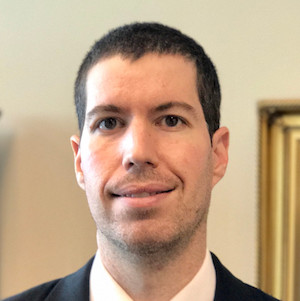
Jeremy Doerre
is an associate at Tillman Wright, PLLC. Mr. Doerre focuses primarily on representing clients in patent matters related to software and computer technology. Mr. Doerre has ten years of experience preparing and prosecuting patent applications, but of late spends an increasing amount of his time working on post-grant proceedings before the Patent Trial and Appeal Board, and appeals to the Court of Appeals for the Federal Circuit.
For more information or to contact Mr. Doerre, please visit his Firm Profile Page.

Recent Articles by Jeremy Doerre
Narrowly construing the § 101 eligibility exception for abstract ideas is not only suggested by Supreme Court guidance, but also could potentially allow for increased coherence and consistency while simultaneously serving to solicit further Supreme Court guidance on eligibility. Even if the bright-line eligibility prohibition is construed narrowly, § 101 can still serve to police claiming at a level of abstraction that results in overbroad claiming.
It seems clear that the Supreme Court did not intend to categorically prohibit patenting of everything which can be characterized as an abstract idea at some level because the Court indicated that there are at least some abstract ideas that are sufficient to confer patent eligibility: namely, inventive concepts. The Court’s bright-line prohibition against patenting laws of nature and mathematical formulas clearly was not intended to categorically prohibit patenting of everything which can be characterized as an abstract idea because such a bright-line extension would bar patenting of inventive concepts, which by definition are capable of characterization as abstract ideas but which the Court explicitly acknowledged are sufficient to signal eligibility.

![[IPWatchdog Logo]](https://ipwatchdog.com/wp-content/themes/IPWatchdog%20-%202023/assets/images/temp/logo-small@2x.png)